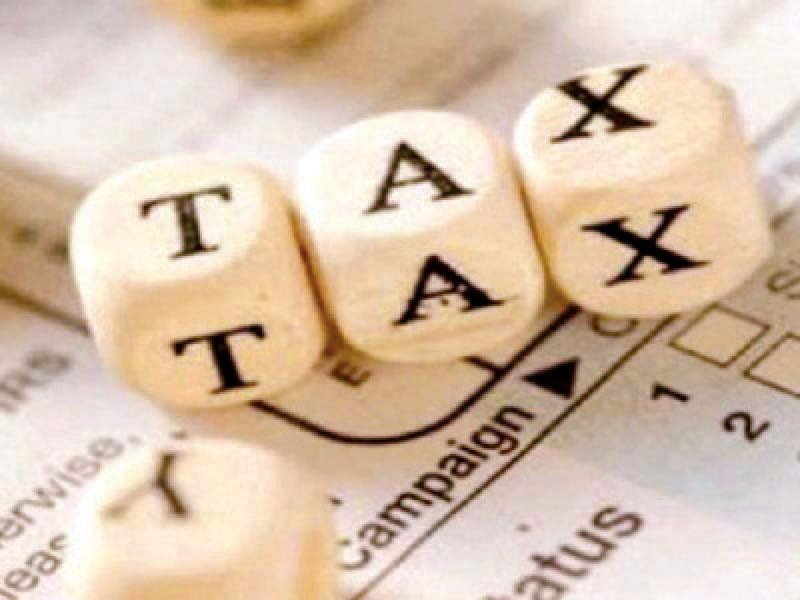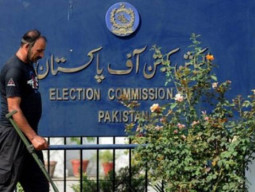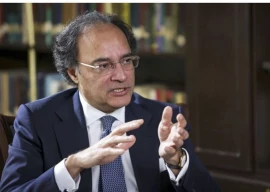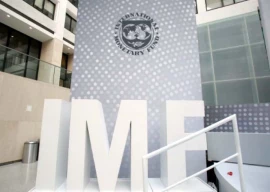
The federal cabinet on Wednesday approved, in principle, to amend Pakistan’s three tax laws to abolish one judicial forum available to aggrieved taxpayers and proposed to reduce the time period to file appeals against tax cases in high courts from three to just one month.
According to the Tax Laws Amendment Bill 2024, the high courts have been proposed to make it legally bound to decide the tax-related cases within six months. Only special benches of high courts can hear the tax matters.
The cost of seeking justice has also been proposed to increase by 150% in the case of individuals and 300% for companies.
The bill will now be tabled before the new National Assembly as a money bill for its approval – a form of legislation where the Senate does not have voting powers.
The bill has been introduced to recover trillions of rupees revenues stuck up in the courts. However, the majority of these disputed sums are irrecoverable due to questionable tax provisions like collecting taxes in areas that are constitutionally in the domain of the provinces – the infamous section 7E.
The Federal Board of Revenue (FBR) has also raised hundreds of billions of rupees in demands in the past either to meet tax targets or under political compulsions against the sugar sector during the PTI tenure.
A cabinet minister confirmed to The Express Tribune that the federal cabinet has, in principle, approved the Tax Laws Amendment Bill. But it would be further fine-tuned in light of the discussion that took place in the federal cabinet before it was laid before the National Assembly for approval.
The high courts will be legally bound to decide the tax cases within six months, according to the proposed bill. It has been proposed to abolish the forum of the commissioner appeals out of the four legal platforms that are currently available to the taxpayers.
The commissioner appeals is the first tier, followed by the appellate tribunal, high courts and the Supreme Court.
Some of the cabinet members questioned the implications of the proposed law on the taxpayers, particularly for the companies. Through the legal amendments, the government has also proposed to halve the limit of the disputed tax amount that can be taken to the Alternate Dispute Resolution Committee (ADRC) for resolution.
As against the current limit of Rs100 million, it has been proposed that up to Rs50 million cases can also be taken to the ADRC for amicable resolution. However, the limit for the State-Owned Enterprises (SOEs) will remain at Rs100 million. According to the bill, as against the current period of making an appeal to the high courts against the appellate tribunals’ decisions in three months, the period has been cut to just one month.
The position of the commissioner of inland revenue has been proposed to be deleted from the laws. The government has proposed to set up a new directorate general of law, which will be headed by a director general and assisted by additional, deputy and assistant directors and the law officers.
The government has proposed to abolish section 45 B of the Sales Tax Act, denying the taxpayers a right to file appeals within 30 days against the decisions of the FBR officers. Instead, the appeal can now be filed in front of the appellate tribunals within 30 days. All appeals and proceedings under this Act pending before commissioner appeals shall stand transferred to the appellate tribunal with immediate effect.
Similarly, all pending appeals and proceedings including rectification and remand back proceedings and recovery orders pending before commissioner appeals shall be deemed to have been filed before the appellate tribunals.
At present any person dissatisfied with any order passed by a commissioner or an officer of inland revenue may file an appeal against the decision of the FBR to the commissioner appeals. The appellate tribunals have also been proposed to be strengthened through the hiring of expensive legal minds.
A person shall be eligible to be appointed as a member of the appellate tribunal if he has been an advocate of a high court for not less than 15 years and has for not less than 10 years practised professionally as a chartered accountant.
An officer of the inland revenue in BS-21 or above; or an officer of the inland revenue in BS-20, having served in such grade for three years or more can also be appointed as member of the appellate tribunals. The cost of appeal has been increased from Rs5,000 in the case of a company to Rs20,000 – a 300% jump.
The price is increased from Rs2,000 in cases other than a company to Rs5,000 – a 150% surge. The appellate tribunal may stay the recovery of tax for three months but it will decide the appeal within three months of the filing. The appeals that were already pending before the appellate tribunals would be decided within six months.
The appellate tribunal will not increase the amount of any assessment or penalty or decrease the amount of any refund unless the taxpayer has been given a reasonable opportunity to show cause against such increase or decrease, according to the proposed law. Within 30 days of the communication of the order of the appellate tribunal, the aggrieved person or the commissioner may appeal before the high court, stating any question of law arising out of such order.
The special benches of the high courts will hear the tax case, consisting of not less than two judges of the high court.
The special bench shall decide on a reference within six months from the date of its filing. The high court may stay in the recovery of tax, subject to deposit with the assessing authority of not less than 30% of the tax determined by the appellate tribunal.
Where recovery of tax has been stayed by the high court by an order, such order shall cease to have effect on the expiration of a period of six months following the day on which it was made unless the appeal is decided or such order is withdrawn by the high court earlier, according to the bill.


1732184775-0/BeFunky-collage-(80)1732184775-0-165x106.webp)

1731933289-0/BeFunky-collage-(68)1731933289-0-165x106.webp)


1732179298-0/BeFunk_§_]__-(23)1732179298-0.jpg)

1732181665-0/Express-Tribune-(9)1732181665-0-270x192.webp)
1732178966-0/BeFunk_§_]__-(22)1732178966-0.jpg)
1732178488-0/Express-Tribune-(7)1732178488-0-270x192.webp)









COMMENTS
Comments are moderated and generally will be posted if they are on-topic and not abusive.
For more information, please see our Comments FAQ